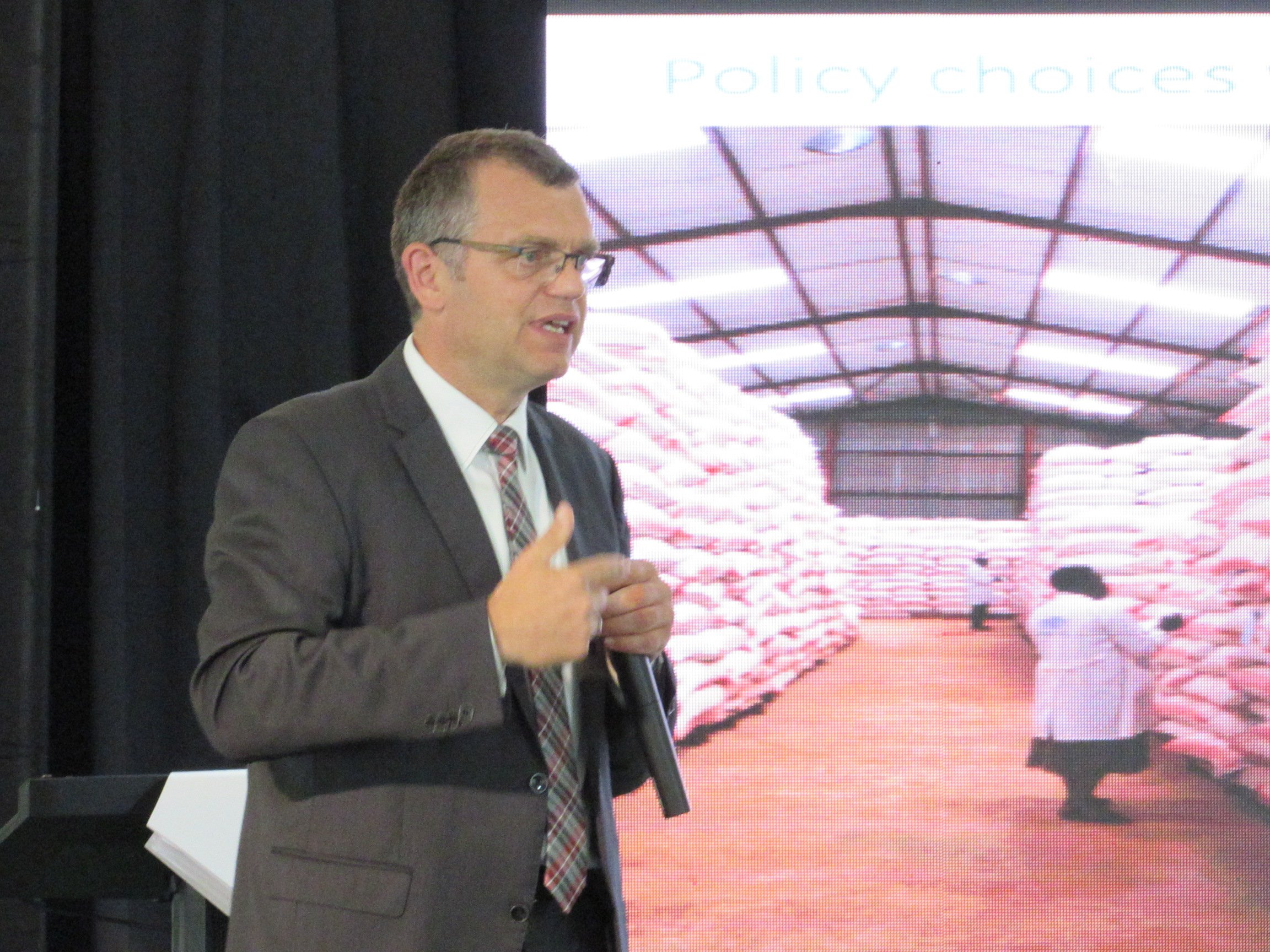The World Bank has highlighted the need for government to deal with the issue of institutional and policy inefficiencies which have hindered productivity in the agricultural sector.
This recommendation is part of a report released by the World Bank on Tuesday on closing the potential performance divide gap in Uganda’s agriculture.
Uganda still lags behind other countries in the region despite having a better resource endowment and thus needs rapid turnaround in agricultural productivity growth, the report notes.
“It is vital to increase both the efficiency and amount of domestic public spending in Uganda going go industrial research and extension for this purpose, especially with respect to small holder farmers,” said Holdger Kray, the Head of Africa Agriculture Policy Unit at the World Bank while presenting the report.
The report was released at Sheraton Kampala Hotel on Tuesday.
Severally, farmers have complained about poor varieties of seedlings or pesticides that have resulted into poor harvests and losses.
According to the report, particular focus for review needs to be placed on the extensive public funds spent on the procurement of agricultural inputs for redistribution on a free or subsidized basis by agents other than qualified extension personnel.
Other institutional challenges highlighted include poor coordination among agriculture agencies, weak data collection and poor absorption capacity of public institutions.
Holger said that the fact that the growth of agriculture as a sector (2.2%) remains lower than the population growth (3.3%) in the last five years is a worrying trend. In the other East African countries, the sector has been growing between 3% and 5%.
“Uganda is among the most vulnerable and simultaneously least adapted countries to climate change. Without building resilience, poverty reduction achievements are a threat being reversed,” Holger added.
Making a reaction to the issue of institutional challenges especially in the supply of agricultural inputs, Lt Gen Angina, the Deputy Coordinator of Operation Wealth Creation (OWC) blamed it on corrupt tendencies in some government agencies.
“NAADS has not done a good job in providing the best inputs that are worth the money being spent. The problem is corruption. People are thinking about themselves than the people these services were designed to help,” Angina noted.
He said that corruption also explains why these agencies are giving seedlings to regions that are suitable for pastoralism which he said undermines the intentions of such programs.
On his part, the Executive Director of the National Planning Authority, Dr Joseph Muvawala stressed the need to create systems that eliminate what he termed as ‘rent seekers’ that have frustrated the efforts of supplying inputs to farmers. He said that corruption only survives where there are weak systems.
The World Bank report also notes the need for an environment that attracts the private sector into farming so as to drive large scale and export driven agriculture. But for this to be done, Holger said access to affordable financing along the sector’s value chain must be tackled.








